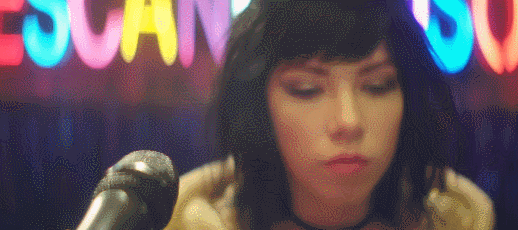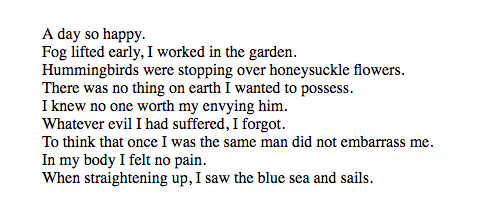“Okay, thank you. Goodbye,” I said nervously upon hanging up the phone after speaking with a professor I know. Satisfied with my pseudo-professionalism, I looked over at my friend and realized she was silently giggling at me.
“What?” I asked, setting my phone down on the dining room table.
“It’s just funny. I mean, your voice gets so much higher and sweeter when you’re talking to real adults. It’s like you’re switching personalities,” she responded, proceeding to return to her homework.
She was so right. Lately, I’ve been considering “voice” and what that actually means in the world of poetics. After spending nearly a year pinpointing precisely what a “Grace poem” is, I’ve been a bit afraid that I will never be able to successfully deviate from it. To combat this, I made a list of the different voices I have around different people in real life: the voice only my friends and family know (and hate), the quiet and serious voice, the voice I use when Johnny bites Kenny in my second grade classroom, the voice I use when speaking with my dear Great Aunt Bonnie, the voice I use in every dreaded class presentation, the voice I use when someone knocks on the public bathroom door and I, for a moment, forget how to speak humanly.
After writing said list, I started to generate poems from different voices, and ended up narrowing in on the sarcastic and witty asshole that lounges in the La-Z-Boy between my brain hemispheres, always making delicious puns in the wrong context or getting nine-year-old Grace out of trouble by making Mom laugh. Writing with wit was an exercise in restraint, especially in the excitement of Taylor Swift-ing the shit out of someone whom I can only hope will someday stumble across a published version of my most recent poem and feel, like, real human emotions or something. Anyway, it was refreshing to get something out there that didn’t follow my own footsteps.
I think biting humor is a great place to start, but I’m excited to keep attempting to access different voices and come at poems from varied angles. For all of you lovely poets out there, what are ways in which you defy your own normal and “try new things?” I could always use more inspiration.
Oh, and if my ex-boyfriend ever Google searches me…since this is a public blog and all…I’m doing pretty damn well and you should think twice before wronging a poet next time.
See y’all in class! 🙂


